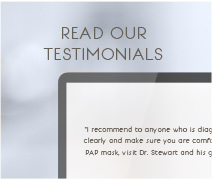 Have you ever heard of monophasic and polyphasic sleepers? While 85 percent of all mammals are polyphasic sleepers, humans fall in the minority of monophasic sleepers. But it wasn’t always that way. There are several theories as to when humans went from being polyphasic sleepers to monophasic sleepers. One theory holds that it was back some time between 70,000 and 40,000 BC that Neanderthal man shifted from a polyphasic to a monophasic sleep pattern. Another theory holds that it was due to the long work hours incorporated during the Industrial Revolution. Regardless of when and why, monophasic sleep does not appear to be natural for humans, nor the best way to sleep. In today’s sleep blog, your Livonia, MI dentist, Dr. James Stewart, discusses sleep patterns.
Have you ever heard of monophasic and polyphasic sleepers? While 85 percent of all mammals are polyphasic sleepers, humans fall in the minority of monophasic sleepers. But it wasn’t always that way. There are several theories as to when humans went from being polyphasic sleepers to monophasic sleepers. One theory holds that it was back some time between 70,000 and 40,000 BC that Neanderthal man shifted from a polyphasic to a monophasic sleep pattern. Another theory holds that it was due to the long work hours incorporated during the Industrial Revolution. Regardless of when and why, monophasic sleep does not appear to be natural for humans, nor the best way to sleep. In today’s sleep blog, your Livonia, MI dentist, Dr. James Stewart, discusses sleep patterns.
Why We Sleep: Adenosine and Homeostasis 2
 During the day when you are working or need to get things done, feeling tired can be a burden. Sometimes you simply cannot finish the task you are doing with any effectiveness if you don’t get some sort of rest, even if it’s just a 10 or 20 minute power nap. Why is it that we feel tired? In today’s sleep blog, your Livonia, MI dentist, Dr. James Stewart, discusses homeostasis and how sleep works.
During the day when you are working or need to get things done, feeling tired can be a burden. Sometimes you simply cannot finish the task you are doing with any effectiveness if you don’t get some sort of rest, even if it’s just a 10 or 20 minute power nap. Why is it that we feel tired? In today’s sleep blog, your Livonia, MI dentist, Dr. James Stewart, discusses homeostasis and how sleep works.
Why We Sleep: Adenosine and Homeostasis
 You all know how important sleep is and how tired and lousy you feel when you don’t get it. You know it’s important to your mental and physical health, but most people don’t really understand their need for sleep. They know their bodies need rest to function properly and feel energetic, but they don’t really know why. In today’s sleep blog, your Livonia, MI dentist, Dr. James Stewart, discusses adenosine and homeostasis two major factors involved with what makes you sleep.
You all know how important sleep is and how tired and lousy you feel when you don’t get it. You know it’s important to your mental and physical health, but most people don’t really understand their need for sleep. They know their bodies need rest to function properly and feel energetic, but they don’t really know why. In today’s sleep blog, your Livonia, MI dentist, Dr. James Stewart, discusses adenosine and homeostasis two major factors involved with what makes you sleep.
Teens and Sleep
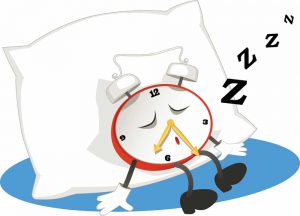 Sleep is important. During sleep important bodily functions occur that help us grow and rejuvenate. Your body and mind needs a proper amount of sleep to function effectively the next day. You may think that teens should be able to function perfectly fine on less sleep, but teens need at least 9 hours of sleep a night to function at their best. In today’s sleep blog, your Livonia, MI dentist, Dr. James Stewart, discusses teens and sleep.
Sleep is important. During sleep important bodily functions occur that help us grow and rejuvenate. Your body and mind needs a proper amount of sleep to function effectively the next day. You may think that teens should be able to function perfectly fine on less sleep, but teens need at least 9 hours of sleep a night to function at their best. In today’s sleep blog, your Livonia, MI dentist, Dr. James Stewart, discusses teens and sleep.
Children and Sleep: Part 3
 You may think the older your children get the less sleep they need. This is a common misconception. When your teen sleeps until noon on weekend mornings and you’re thinking that your child is lazy, take solace in the fact that they are not. Teens require more sleep than you would think. Today your Livonia, MI dentist, Dr. James Stewart, continues his discussion regarding how much sleep children need.
You may think the older your children get the less sleep they need. This is a common misconception. When your teen sleeps until noon on weekend mornings and you’re thinking that your child is lazy, take solace in the fact that they are not. Teens require more sleep than you would think. Today your Livonia, MI dentist, Dr. James Stewart, continues his discussion regarding how much sleep children need.
Children and Sleep: Part 2
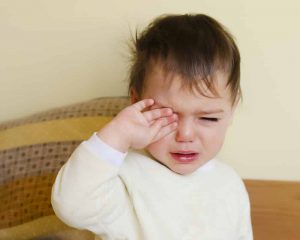 It’s easy to tell when babies are tired. They rub their eyes, cry, and maybe even suck their thumb. It is not as easy to tell with older children though. Even though children seem to have oodles of energy, they still need a proper nights’ sleep. Today your Livonia, MI dentist, Dr. James Stewart, continues his discussion regarding how much sleep children need.
It’s easy to tell when babies are tired. They rub their eyes, cry, and maybe even suck their thumb. It is not as easy to tell with older children though. Even though children seem to have oodles of energy, they still need a proper nights’ sleep. Today your Livonia, MI dentist, Dr. James Stewart, continues his discussion regarding how much sleep children need.
Children and Sleep: Part 1
 People get cranky when they are tired. Sleep revitalizes and re-energizes you and if you don’t get enough of it your mood suffers, your memory is not as sharp, your reaction time is poor, it’s hard to concentrate and stay focused, and so on and so forth. Babies, children, tweens, teens, and adults all need the appropriate amount of sleep to function effectively. Today your Livonia, MI dentist, Dr. James Stewart, discusses how much sleep children need.
People get cranky when they are tired. Sleep revitalizes and re-energizes you and if you don’t get enough of it your mood suffers, your memory is not as sharp, your reaction time is poor, it’s hard to concentrate and stay focused, and so on and so forth. Babies, children, tweens, teens, and adults all need the appropriate amount of sleep to function effectively. Today your Livonia, MI dentist, Dr. James Stewart, discusses how much sleep children need.
More About The Circadian Rhythm
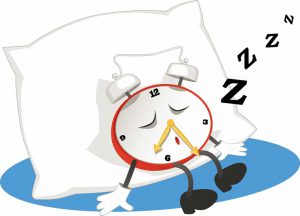 Your circadian rhythm affects your sleep patterns and sleep affects you in a big way. It affects you physically, mentally, and emotionally. If you don’t sleep well, you’re sluggish and moody the next day. If you do sleep well, you are energetic and happy. In his last blog, your Livonia, MI dentist, Dr. James Stewart touched on your biological clock and circadian rhythm. In today’s blog he delves deeper into both, explaining their role in sleep.
Your circadian rhythm affects your sleep patterns and sleep affects you in a big way. It affects you physically, mentally, and emotionally. If you don’t sleep well, you’re sluggish and moody the next day. If you do sleep well, you are energetic and happy. In his last blog, your Livonia, MI dentist, Dr. James Stewart touched on your biological clock and circadian rhythm. In today’s blog he delves deeper into both, explaining their role in sleep.
Your Sleep Body Clock
 Have you ever noticed that you get sleepy at certain times of the day, while at other times you get what many people call a “second wind?” Most people experience different levels of alertness and tiredness, or lack of energy throughout the day. This is due to your biological body clock. Our internal clocks tell us when we should be sleepy and when we should be awake. Today, your Livonia, MI dentist, Dr. James Stewart, discusses your internal circadian rhythm.
Have you ever noticed that you get sleepy at certain times of the day, while at other times you get what many people call a “second wind?” Most people experience different levels of alertness and tiredness, or lack of energy throughout the day. This is due to your biological body clock. Our internal clocks tell us when we should be sleepy and when we should be awake. Today, your Livonia, MI dentist, Dr. James Stewart, discusses your internal circadian rhythm.
Sleep States: Part 2 – REM Sleep
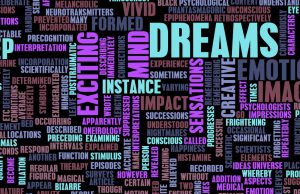 Sleep studies began with the invention of the electroencephalograph (EEG). The EEG records electrical impulses from your brain, which is active even during sleep. During the 1950s, Eugene Aserinsky discovered REM sleep using the electroencephalograph. Since then studies have shown that sleep consists of stages. These stages can be determined according to the different brain wave patterns your brains produce during sleep. Today, your Livonia, MI dentist, Dr. James Stewart, continues his two-part series on sleep states with a discussion of REM sleep.
Sleep studies began with the invention of the electroencephalograph (EEG). The EEG records electrical impulses from your brain, which is active even during sleep. During the 1950s, Eugene Aserinsky discovered REM sleep using the electroencephalograph. Since then studies have shown that sleep consists of stages. These stages can be determined according to the different brain wave patterns your brains produce during sleep. Today, your Livonia, MI dentist, Dr. James Stewart, continues his two-part series on sleep states with a discussion of REM sleep.





